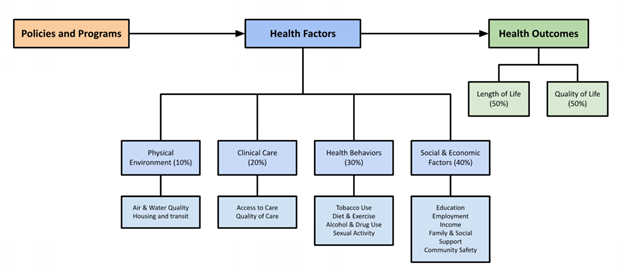By Danielle Millan, BA and Peter Lio, MD
Atopic dermatitis (AD) is the most common inflammatory skin condition, affecting up to 20% of the pediatric population and 10% of adults.1,2 The association of AD with mental health comorbidities is well established. Children with AD experience higher rates of depression, anxiety, conduct disorder, and internalizing behavior when compared with those without AD.3,4 Adults with AD are more likely to report a lower quality of life and higher stress levels, as well as develop new depression, anxiety, and suicidal ideation.4,5,6 Multimodal strategies to prevent or treat AD may help modify the risk or severity of comorbid mental health disorders, particularly when patient-centered care is emphasized.
Patient-centered care, or care that is “respectful of and responsive to individual patient preferences, needs, and values,” is not a new phenomenon.7 it is now considered an essential aspiration of high-quality health care systems and excellent medical professionals.7 It has been shown that patient-centered care results in improved communication and health outcomes, including survival.8,9,10 Most studies of patient-centered care have emphasized the relationship between the patient and their care team while in the clinic setting. However, it is important to recognize that clinical care only accounts for 20% of the variation in health outcomes for a population.11 The remaining 80% can be traced back to social determinants of health, such as access to education, economic stability, and community context, as demonstrated in Figure 1.11 In addition, the time spent in office visits is only a fraction of the total time the patient will engage in activities or treatments related to their care. Patients can participate in live or virtual medical seminars, self-guided research, peer support groups, and specific disease-related conferences. Moreover, the potential impact of these out-of-office options for patient engagement with their care and with others experiencing similar challenges is enormous, especially when considering a condition such as AD that has a high rate of mental health comorbidities.
Figure 1:

Adapted from: Measures & Data Sources | County Health Rankings Model. County Health Rankings & Roadmaps. Accessed Jul. 1, 2023.
The Eczema Expo, hosted annually by the National Eczema Association (NEA), is an example of a patient-centered conference that strives to gather and unite the global AD community, their caregivers, and healthcare professionals for a weekend of education, bonding, and support.12 The Expo provides an opportunity for people with AD to find strength in shared experiences while learning about updated information and resources from AD experts. Financial support and scholarships are available to those who may otherwise be unable to attend. In 2023, there were more than 600 attendees who were able to attend 60-plus educational sessions, including foundational talks on AD and what causes it, how to manage flares and itch, and the future of AD research and treatment.12 Attendees also had the opportunity to engage in karaoke, fitness sessions, mindfulness yoga, and a dine-in movie, among other activities, over the course of the Expo.
Save the Date: Eczema Expo is July 24 – 27, 2025 in Scottsdale, Arizona! Registration opens in January 2025.
In addition to the Expo, the NEA also hosts an Expo Camp, which is an adventure camp experience created just for children and teens with AD.13 This camp supports those with AD by providing a fun environment that nurtures self-esteem. It includes similar activities with age-appropriate educational sessions.13 The purpose of these NEA events is to foster long-lasting connections to each other and to self. This creates a heightened sense of understanding and community and a space for reflection and learning that would not be possible otherwise.
Although management of AD often requires a multimodal approach involving various care teams, appointments, and treatment plans, health outcomes are only partly impacted by clinical care. The majority of time a person spends engaging in activities related to their care is outside of the clinic setting. This means that events such as the Eczema Expo and Expo Camp can have a huge impact on the overall well-being of those with AD. The opportunities for learning, reflection, community, and fun can help push back against the higher rates and severity of mental health comorbidities in those with AD.
Looking Toward the Future
For similar benefits, these patient-centered conferences have value for different conditions within dermatology as well as other fields of medicine. For example, the National Psoriasis Foundation hosts biannual, free community conferences that offer a space for patients with psoriasis to connect with peers and caregivers, while staying up to date with recent advancements and information regarding care.14 Patient-centered conferences are also held for patients with diabetes, lupus, and inflammatory bowel disease, among others.15, 16, 17
There is clearly work being done to shift the culture of medicine to revolve around the patient and their needs. Awareness of these patient-centered conferences is growing, yet they are still fairly unique, especially considering the potential benefit they could have for patients and caregivers in all disease states. The NEA events for AD provide a model for how pioneers in other disease states can reform care and improve health outcomes by putting the patient at the center of it all.
References
- Odhiambo JA, Williams HC, Clayton TO, et al. Global variations in prevalence of eczema symptoms in children from ISAAC Phase Three. J Allergy Clin Immunol. 2009;124(6):1251-8.e23. doi:10.1016/j.jaci.2009.10.009
- Silverberg JI, Hanifin JM. Adult eczema prevalence and associations with asthma and other health and demographic factors: a US population-based study. J Allergy Clin Immunol. 2013;132(5):1132-1138. doi:10.1016/j.jaci.2013.08.031
- Kern C, Wan J, LeWinn KZ, et al. Association of Atopic Dermatitis and Mental Health Outcomes Across Childhood: A Longitudinal Cohort Study. JAMA Dermatol. 2021;157(10):1200–1208. doi:10.1001/jamadermatol.2021.2657
- Rønnstad ATM, Halling-Overgaard AS, Hamann CR, et al. Association of atopic dermatitis with depression, anxiety, and suicidal ideation in children and adults: a systematic review and meta-analysis. J Am Acad Dermatol. 2018;79(3):448-456.e30. doi:10.1016/j.jaad.2018.03.017
- Schonmann Y, Mansfield KE, Hayes JF, et al. Atopic eczema in adulthood and risk of depression and anxiety: a population-based cohort study. J Allergy Clin Immunol Pract. 2020;8(1):248-257.e16. doi:10.1016/j.jaip.2019.08.030
- Kwak Y, Kim Y. Health-related Quality of Life and Mental Health of Adults With Atopic Dermatitis. Archives of Psychiatric Nursing. 2017;31(5):516-521. https://doi.org/10.1016/j.apnu.2017.06.001.
- Greene SM, Tuzzio L, Cherkin D. A framework for making patient-centered care front and center. Perm J. 2012 Summer;16(3):49-53. doi: 10.7812/TPP/12-025. PMID: 23012599; PMCID: PMC3442762.
- Meterko M, Wright S, Lin H, et al. Mortality among patients with acute myocardial infarction: the influences of patient-centered care and evidence-based medicine. Health Serv Res. 2010 Oct;45(5 Pt 1):1188–204. https://pubmed.ncbi.nlm.nih.gov/20662947/
- Griffin SJ, Kinmonth AL, Veltman MW, et al. Effect on health-related outcomes of interventions to alter the interaction between patients and practitioners: a systematic review of trials. Ann Fam Med. 2004 Nov–Dec;2(6):595–608. https://pubmed.ncbi.nlm.nih.gov/15576546/
- Rao JK, Anderson LA, Inui TS, Frankel RM. Communication interventions make a difference in conversations between physicians and patients: a systematic review of the evidence. Med Care. 2007 Apr;45(4):340–9. https://pubmed.ncbi.nlm.nih.gov/17496718/
- Hood CM, Gennuso KP, Swain GR, Catlin BB. County Health Rankings: Relationships Between Determinant Factors and Health Outcomes. Am J Prev Med. 2016;50(2):129-135. doi:10.1016/j.amepre.2015.08.024
- “Eczema Expo 2023.” National Eczema Association, https://nationaleczema.org/eczema-expo/. Accessed Jun. 27 2023.
- NEA. “Expo Camp.” https://nationaleczema.org/expo-camp/ Accessed Nov. 6, 2024.
- NPF. NPF Community Conferences: Healthier Together. (n.d.). National Psoriasis Foundation. Retrieved Jul. 10, 2023, from https://www.psoriasis.org/conference/
- Diabetes + Mental Health Conference. Retrieved Jul. 10, 2023, from https://dmhconference.vfairs.com/en/#why-attend
- Patient Conferences | LUPUS LA. (n.d.). Lupus LA. Retrieved Jul. 10, 2023, from https://lupusla.org/patient-services/patient-conferences/
- VII Conference for patients with inflammatory bowel disease. (n.d.). Comunidad de Madrid |. Retrieved July 10, 2023, from https://www.comunidad.madrid/en/hospital/fuenlabrada/actividad/vii-jornada-pacientes-enfermedad-inflamatoria-intestinal
About the authors:
 |
Danielle Millan, BA, is an MD Candidate at Northwestern University Feinberg School of Medicine in Chicago, IL. Ms. Milan reports no relevant disclosures. |
 |
Peter A. Lio, MD, is a Clinical Assistant Professor of Dermatology and Pediatrics at Northwestern University Feinberg School of Medicine and a partner at Medical Dermatology Associates of Chicago. Disclosures: Dr. Lio is a board member and Scientific Advisory Committee Member Emeritus of the National Eczema Association. |


